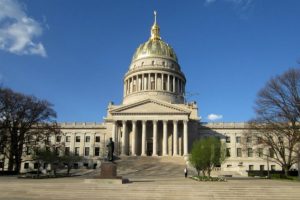 Sports betting has been illegal in most states since 1992, when the “Professional and Amateur Sports Protection Act” (PAPSA) that prohibits states from authorizing sports betting was enacted for the first time. Since then, the world has changed a lot and modern people have new interests. Nowadays, gambling is a popular pastime among people and it seems that this tendency is here to stay. Many states across the United States have already started to push for the legalization of sports betting industry, realizing the number of broad economic benefits.
Sports betting has been illegal in most states since 1992, when the “Professional and Amateur Sports Protection Act” (PAPSA) that prohibits states from authorizing sports betting was enacted for the first time. Since then, the world has changed a lot and modern people have new interests. Nowadays, gambling is a popular pastime among people and it seems that this tendency is here to stay. Many states across the United States have already started to push for the legalization of sports betting industry, realizing the number of broad economic benefits.
Allowing states to legalize sports betting could boost local economies, increase state revenues, and better protect both consumers and the industry. The legalization of sports betting industry is a golden opportunity for cash-strapped states, but the lawmakers should take the right approach in order to make the most of it. In addition to that, the lawmakers should set up realistic revenue expectations.
It is important to note too strict regulations or too high taxes usually have a negative effect on the gambling industry. Needless to say, casino operators with both land-based and online operations tend to avoid tax-heavy jurisdictions. Moreover, too strict regulations also do not bode well фор regulated gambling markets, no matter what is their potential.
Flaws in West Virginia’s Sports Betting Bill
 Thus far, many states have already taken the first step in a long stairwell towards sports betting legalization, but the law needs a change at the federal level. On Tuesday last week, the West Virginia Senate passed a sports betting bill, that would allow the state’s five licensed casinos to offer sports betting. The bill was approved by the wide margin of 25-9 and now it moves to the House of Delegates, where a similar bill is pending.
Thus far, many states have already taken the first step in a long stairwell towards sports betting legalization, but the law needs a change at the federal level. On Tuesday last week, the West Virginia Senate passed a sports betting bill, that would allow the state’s five licensed casinos to offer sports betting. The bill was approved by the wide margin of 25-9 and now it moves to the House of Delegates, where a similar bill is pending.
Generally speaking, the bill allows betting on both professional and collegiate sporting events for players no younger than 21 years old. The state lottery will be tasked with overseeing the industry and eventually authorizing wagering through mobile phone apps. Apart from that, the bill also establishes a tax code, stating that operators should pay a $100,000 licensing fee and a 10% tax on their gross gaming revenue.
However, many financial analyzers have started to wonder if the tax rate imposed on the operators will be profitable for the state. For example, Pennsylvania’s law imposes 34% tax on operators’ gross revenue. Kentucky lawmakers and Maryland’s General Assembly called for a 20% tax fee on sports betting operations.
In July 2017, Gov. Danell Malloy signed a bill that will allow Connecticut to legalize sports betting if given the opportunity. Even though the bill does not specifically state the tax rate that will be imposed on operators, industry experts estimate that the state will, most probably, impose a tax similar to the tax rate imposed on other legalized gambling operations, and more precisely 24%. Following the same stream of thoughts, the most reasonable question that West Virginia lawmakers should ask themselves is if the tax rate is in line with the economic needs of the state.


















